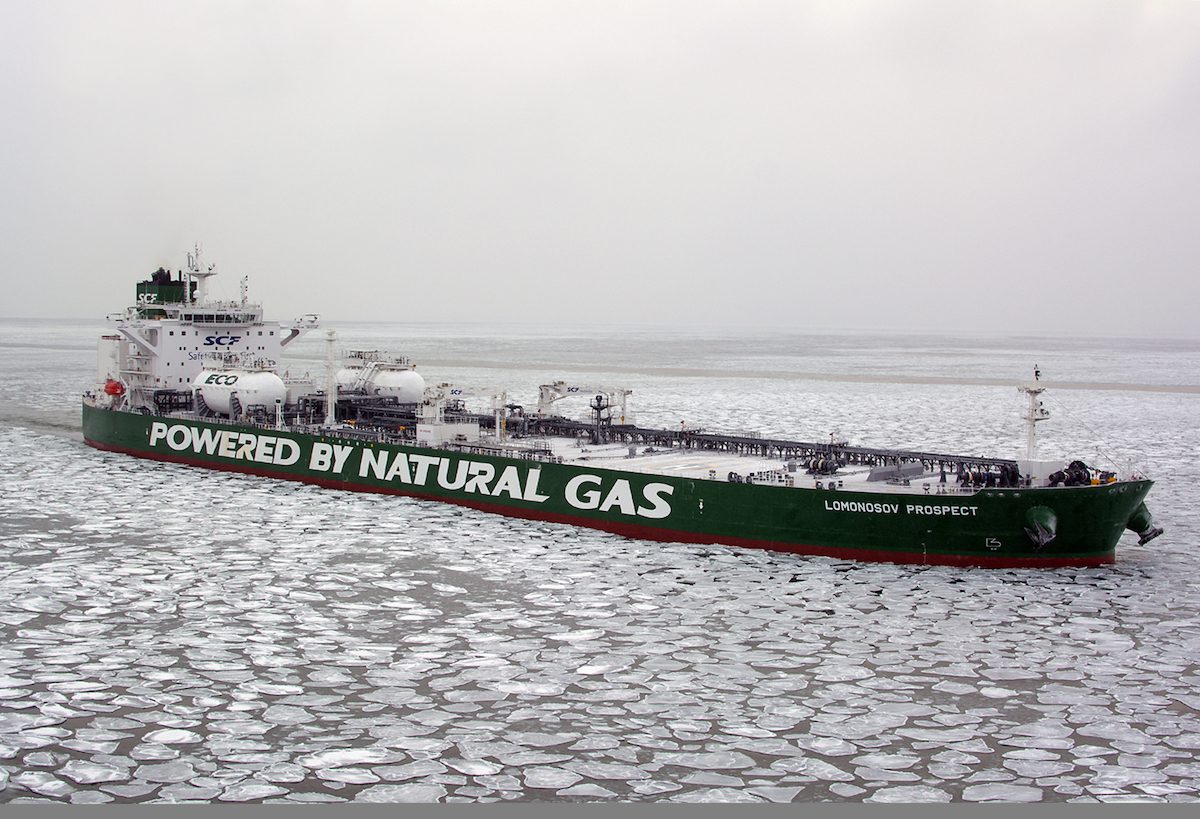The LNG-powered Lomonosov Prospect in the Northern Sea Route. Photo: SCF Group
Russia expects shipping along the Northern Sea Route in to increase more than four-fold by 2024 compared to 2018 levels.
The outlook was presented this week during a working meeting of the Northern Sea Route (NSR) Public Council held Vladivostok at the 5th Eastern Economic Forum. The working group included heads of both public and private organizations from Russia and shipping companies with interest in the NSR.
Addressing the group, Aleksey Likhachev, CEO of Russia’s state-run nuclear energy company Rosatom, said he expects annual traffic of 80 million metric tons along the Northern Sea Route by 2024, more than four times the 19.7 million metric tons shipped in 2018.
Rosatom was selected by the Russian government to operate the Northern Sea Route and has estimated that the route will require 735 billion roubles ($11.7 billion) in investments to make it safe and viable.
“Under the auspices of the federal ‘Northern Sea Route’ project we have made the necessary arrangements to reach a target annual traffic of 80 million tonnes along the NSR by 2024,” said Likhachev. “This requires the development of infrastructure, including the Arctic icebreaker fleet, satellite communications, accident prevention measures, port fleet and digital services for shipping. We will be able to meet these challenges together, only with the involvement of all the Council participants: charterers; shipping companies; scientific and project organisations; business representatives and the authorities,” said Aleksey Likhachev addressing the meeting.”
Sergey Frank, President and CEO of Russian shipping company Sovcomflot, echoed Likhachev’s call for development to ensure the safety of shipping in the region. Sovcomflot is the Russian state-owned shipping company that specializes in shipping petroleum products and LNG in the Arctic, including along the Northern Sea Route. The company started testing the commercial viability of shipping through the Arctic in 2010. In 2017, the company introduced the Christophe de Margerie, the world’s first icebreaking LNG carrier and first in a series of similar vessels supporting shipping from the Yamal LNG project in northern Siberia. The company’s LNG-fuelled Aframax crude oil tanker, Korolev Prospect, recently completed a full transit of the NSR powered by cleaner-burning LNG fuel.
“Maritime transportation along the NSR has to be carried out in full compliance with the highest safety and quality standards, with the focus on the environment,” said Frank. “In 2018, freight traffic along the NSR almost doubled to 19.7 million tonnes, in comparison with 2017. There is no doubt that the significant growth in NSR traffic pushes the human element to the fore, where the quality of marine specialists will be crucial to ensure safe shipping,” he added.

 Join The Club
Join The Club











